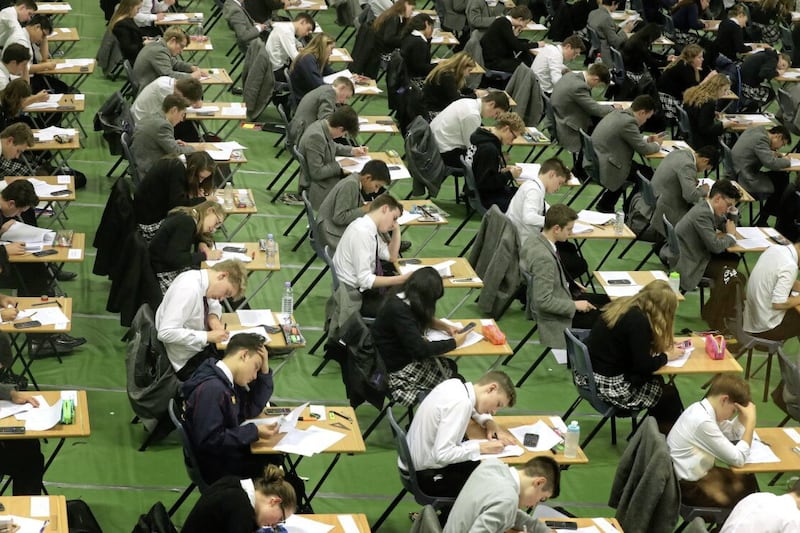ACADEMIC selection is damaging children's mental health, a human rights report has warned.
A study which sought the views of pupils and teachers at schools across Northern Ireland said 11-plus-style tests were "harmful".
An unregulated system has operated for more than a decade with grammar schools using their own entrance exams.
The report from the Right to Education (R2E) group, facilitated by Participation and the Practice of Rights, said a system that raised some pupils up at the expense of others was cruel.
It also "shows wanton disregard to children's needs".
R2E undertook the research because the Education Authority and Department of Education do not monitor the effects of selection on children's mental health.
As part of the study, it surveyed more than 200 pupils and 50 teachers from a range of schools. Those who took part included children who `passed' or `failed' the exams.
Six out of every 10 pupils said they believed the transfer test was bad for them, while 92 per cent of teachers felt the system had a significant negative impact on children's mental health.
Belfast Model School For Girls was among those involved in the research.
Teacher Rachel Ashe said she had experience of pupils who had "very negative experiences" of transfer.
"It was our hope to give these students a platform to express their views, and implement change so that this could be a more positive experience," she said.
"The range of people surveyed was wide and included those with special educational needs, those who attended grammar schools, those who attended non-selective schools, those for whom English is not their first language, those who lived in inner city areas and those who lived in rural areas. The findings of these surveys was most disturbing."
Gerry Murphy, northern secretary of the INTO union, welcomed the report.
"As a trade union representing teaching staff who care passionately about children we welcome this initiative by pupils and teachers," he said.
"We call on the permanent secretary to listen to the young people and their modest recommendations for change."







